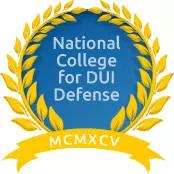Driving data shows that driving while intoxicated increases during holidays, such as July 4th, Memorial Day, Labor Day, St. Patrick’s Day, Christmas, and Thanksgiving weekends.
For this reason, Texas usually declares these days as “No Refusal” weekends. An experienced Texas DWI criminal defense lawyer can explain to you that a “No Refusal” holiday does not mean that you do not have a right to refuse a police officer’s request to give your blood or breath specimen for testing. All it means is that the law enforcement makes increased arrangements on these days to ensure that the police officer who stops you can quickly obtain a warrant to collect your breath or blood sample to test you for suspected DWI.
What Occurs on a Texas “No Refusal” Weekend?
While a Texas DWI criminal defense attorney may or may not advise you to refuse a request from a police officer for a breathalyzer test, you legally have the right to refuse it. On a “No Refusal” weekend, the law enforcement will try to prevent you from saying, “No” by expediting their search warrant process. The law enforcement agencies in Texas will make more resources available on these weekends to obtain a search warrant. They may include:
- Increased number of police officers in “No Refusal” areas to enforce DWI offenses
- Higher availability of trained blood-draw nurses
- Ready availability of a magistrate judge who can evaluate the probable cause and sign the required affidavits for a police officer’s search warrant
Following a traffic stop, the law enforcement officer may first request you to undergo a field sobriety test. You can legally refuse this request without facing any legal consequences. However, once you do that, the expedited mechanism of seeking your blood or breath evidence will come into play on a “No Refusal” weekend in Texas.
Is it Mandatory to Submit to a Legal DWI Chemical Test?
The implied consent law in Texas requires you to submit yourself to a police officer’s legal request during a traffic stop for a DWI chemical test. However, in practice, many DWI suspects in the state may refuse to voluntarily give a blood or breath sample, no matter what their Texas criminal defense lawyer advised them to do.
This refusal leads to legal consequences, such as possible suspension of the driver’s license. More importantly, a refusal might add more weight to the prosecution’s argument that you were driving while intoxicated. To discourage DWI incidents, particularly during holiday weekends when the probability of driving intoxicated is higher, the system of “No Refusal” weekends has been put in place in Texas.
Legal Consequences of Refusing a Breathalyzer Test
If you refuse a police officer’s request for a legal breathalyzer test, your driver’s license may be suspended for at least 180 days. However, you will not have to face any specific additional penalties just because you refused an officer’s request for a blood or breath DWI test. There is no such thing as an automatic license suspension. In fact, a knowledgeable Texas DWI criminal defense lawyer can try to save your license from being suspended by timely requesting an ALR hearing (Administrative License Revocation Program). If your license is suspended, a lawyer can also help you obtain an Occupational License so you can still drive legally.
Get Legal Representation from a Texas DWI Criminal Defense Lawyer
Did you or someone you love get arrested for DWI on a “No Refusal” weekend in Texas? Get moving fast and speak to our dedicated DWI lawyers at Tyler Flood & Associates, Inc. for the right legal advice. Contact us at 713.224.5529 for a free consultation or reach us online.









